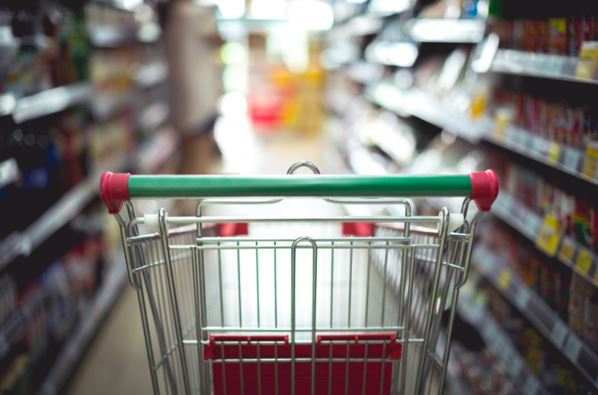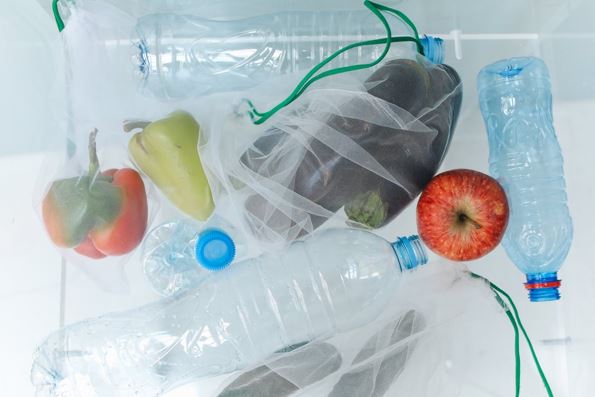How a Supermarket Can Boost Sales with Innovative Strategies
The food retail industry is undergoing rapid transformation as businesses adapt to changing consumer preferences and an increasingly competitive market. To stay ahead, supermarkets are implementing innovative strategies aimed at enhancing the customer experience, expanding product offerings, and optimizing operations.
These forward-thinking approaches are driving sales growth and solidifying their position in an ever-evolving landscape. Let’s delve into the key tactics food shops are employing to improve sales and foster customer loyalty.
Embracing Online and Delivery Services
With more consumers preferring the convenience of online shopping and home delivery, supermarkets are increasingly focusing on digital platforms to capture this growing market. The demand for online grocery delivery skyrocketed during the pandemic and has continued to remain strong. However, it’s not enough for businesses to simply offer delivery services—they need to ensure these services are efficient, user-friendly, and well-promoted.
Optimize Your Supermarket’s Website for User Experience and Organic Vizibility
The competition among food retailers is fierce, and having a solid online presence is crucial for staying competitive. More food shops are investing in user-friendly websites that provide a seamless shopping experience. Streamlined payment options, easy navigation, and optimized product listings are essential elements of a successful e-commerce platform. Businesses are also turning to SEO services to grow online traffic, ensuring their websites rank higher on search engines, making it easier for potential customers to find them. From local grocery stores to specialized shops selling organic produce or gourmet snacks, businesses with well-optimized websites are seeing higher conversion rates and more loyal customers.
Partnering with Delivery Apps
In addition to improving their own online platforms, supermarkets are partnering with delivery apps such as UberEats, DoorDash, and Grubhub. These apps give food retailers access to a broader customer base, including those who might not have previously shopped with them. Partnering with delivery services also reduces the need for shops to manage their own fleet of drivers, making it easier and more cost-effective to scale delivery operations.
Expanding Product Offerings to Cater to Consumer Demands
As consumers become more selective about what they eat, food stores are expanding their product lines to meet these changing preferences. This means diversifying product categories, offering more healthy and organic options, and keeping an eye on emerging food trends.
Specialty Products: A Key Driver of Sales
Offering unique and specialty products is a highly effective strategy for supermarkets aiming to differentiate themselves from their competitors. From gourmet snacks to international cuisine, there is a growing demand for niche food items that are not easily found in big-box grocery stores. For instance, products like kombucha, freeze-dried candy, and plant-based alternatives have been gaining popularity. By introducing these innovative products, supermarkets can attract a broader customer base and tap into new market segments.
Catering to Health-Conscious Consumers
Health and wellness trends are continuing to shape the food industry, with many consumers seeking organic, gluten-free, and non-GMO products. Supermarkets are capitalizing on this trend by curating selections that cater to these specific dietary needs. Many stores have dedicated sections for health-conscious customers, offering products like plant-based proteins, superfoods, and organic produce. This focus on health and wellness boosts sales and encourages customer loyalty, as shoppers appreciate having access to high-quality, healthy options.
Leveraging Technology for Operational Efficiency
Any supermarket seeks to increase sales and also aim to enhance operational efficiency. The adoption of modern technologies plays a vital role in optimizing operations, improving customer service, and reducing costs.
Smart Inventory Management
Inventory management is critical for food stores, particularly those dealing with perishable items. Modern inventory management systems equipped with real-time tracking and automatic reordering capabilities help food retailers reduce waste and stock shortages. With these systems in place, shop owners can monitor inventory levels, track expiration dates, and forecast future demand more accurately. This results in fewer lost sales due to out-of-stock items and minimizes the risk of overstocking, which can lead to spoilage.
Upgrading Refrigeration Systems
In addition to inventory management, upgrading equipment is essential for improving sales. Many food retailers are investing in energy-efficient commercial fridge and freezer systems to store products at optimal temperatures while reducing energy costs. These upgrades help extend the shelf life of perishable items and ensure compliance with food safety regulations. Customers are more likely to trust a business that consistently offers fresh, high-quality products.
Creating Memorable In-Store Experiences
While online shopping is growing, brick-and-mortar supermarkets still hold a special place for many consumers who enjoy the tactile experience of choosing their food in person. For these shops, creating a memorable in-store experience is essential for driving foot traffic and encouraging repeat visits.
Store Layout and Visual Merchandising
The design and layout of a food shop can significantly impact sales. Clear signage, logical product placement, and well-organized aisles make it easier for customers to find what they need, leading to increased satisfaction and higher sales. Visual merchandising—such as attractive displays, themed sections, and eye-catching promotions—can also encourage impulse purchases.
For example, a well-positioned end cap display featuring artisanal bread and spreads can tempt a shopper to make an unplanned purchase. Similarly, seasonal decorations and promotions, like a “Back-to-School” snack section or a holiday-themed treat display, create a more engaging shopping experience that encourages customers to explore and buy more.
Hosting Events and Workshops
Many supermarkets are enhancing the in-store experience by hosting community events, tastings, and workshops. These activities allow customers to engage directly with products, ask questions, and even sample new items before purchasing. For instance, stores specializing in health foods may offer smoothie-making workshops, while gourmet shops could host wine and cheese tastings. These events improve foot traffic and foster a sense of community, strengthening customer loyalty and encouraging word-of-mouth marketing.
Sustainability as a Sales Driver
Sustainability is no longer just a buzzword—it’s a growing concern for consumers, especially when it comes to food. As a result, the supermarkets are adopting sustainable practices and marketing them effectively to attract eco-conscious customers.
Sourcing Locally
One of the most prominent trends in sustainable food retail is the emphasis on local sourcing. By partnering with local farmers and suppliers, food shops can offer fresh, seasonal produce while supporting the local economy. Many consumers are willing to pay a premium for locally sourced food, as it is often perceived to be fresher and more environmentally friendly due to reduced transportation emissions. Highlighting these partnerships through marketing materials or in-store signage can appeal to customers who prioritize sustainability.
Reducing Packaging Waste
Another way supermarkets are demonstrating their commitment to sustainability is by reducing plastic packaging and offering eco-friendly alternatives. From reusable bags to bulk-buy sections where customers can bring their own containers, these small changes can make a big impact on a store’s environmental footprint. In addition, many consumers are drawn to businesses that share their values on sustainability, making these efforts an important factor in building customer loyalty.
Adapting for Success in a Changing Market
Food shops are constantly evolving to meet new challenges and opportunities. By embracing technology, diversifying product offerings, and creating memorable shopping experiences, these businesses are successfully driving sales while adapting to the ever-changing consumer landscape. Whether it’s through improving operational efficiency with professional equipment or tapping into emerging products, food retailers are finding innovative ways to grow their customer base and increase revenue.
Moreover, in an era where online presence is paramount, investing in digital marketing services can no longer be overlooked. The future belongs to supermarkets willing to innovate, adapt, and meet the evolving needs of their customers with creativity, efficiency, and sustainability at the forefront of their strategy.



